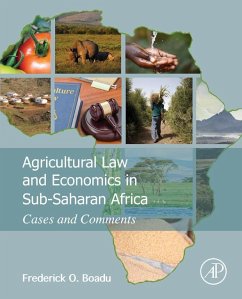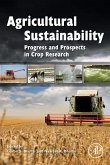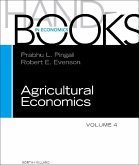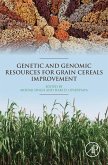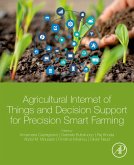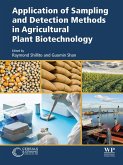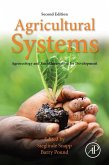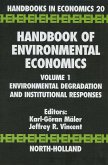Agricultural Law in Sub-Saharan Africa: Cases and Comments introduces the subject of agricultural law and economics to researchers, practitioners, and students in common law countries in Sub-Saharan Africa, and presents information from the legal system in Botswana, Gambia, Ghana, Lesotho, Malawi, Nigeria, Sierra Leone, South Africa, Swaziland, Tanzania, Zambia, and Zimbabwe. The law and economics approach entails the use of quantitative methods in research. This is consistent with the expectations in an applied economics field such as agricultural economics.
Covering the general traditional law topics in contracts, torts, and property, the book goes further to introduce cutting-edge and region-relevant topics, including contracts with illiterate parties, contract farming, climate change, and transboundary water issues. The book is supported by an extensive list of reference materials, as well as study and enrichment exercises, to deepen readers' understanding of the principles discussed in the book. It is a learning tool, first and foremost, and can be used as a stand-alone resource to teach the subject matter of agricultural law and economics to professionals new to the subject area as well as to students in law school, agricultural economics, economics, and inter-disciplinary classes.
- Offers research findings on such topics as food safety, climate change, transboundary natural resources, international sale of goods, patents, and trademarks to highlight the future sources of pressure on the agriculture industry
- Uses case-studies to provide real-world insights into the challenges and considerations of appropriate agricultural law development
- Challenges readers to carry out their own research in their areas of study, and to gain some understanding of the relationship between law, economics, and statistics
- Includes extensive resources, such as chapter summaries, study questions, and challenge questions at the end of each chapter to assist instructors and students in gaining full benefits from using the book
- Provides separate instructor and student study guides, a test bank, and test bank answers, in hardcopy and electronic formats
Dieser Download kann aus rechtlichen Gründen nur mit Rechnungsadresse in A, B, BG, CY, CZ, D, DK, EW, E, FIN, F, GR, HR, H, IRL, I, LT, L, LR, M, NL, PL, P, R, S, SLO, SK ausgeliefert werden.

